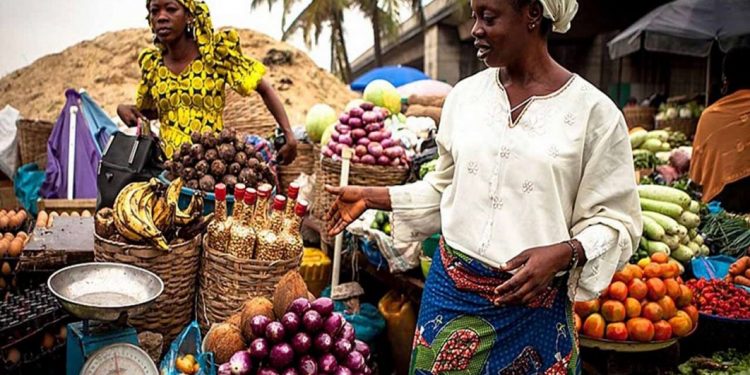By John Ikani
Against the backdrop of an enduring surge in food prices, Nigeria has experienced a 10th consecutive uptick in the inflation rate, reaching a new pinnacle of 27.33% for October.
Analysts foresee further surge in the upcoming months.
This latest figure indicates a 0.61 percentage point year-on-year (YoY) increase, compared to the 26.72% recorded in September.
The National Bureau of Statistics (NBS) made these known in its Consumer Price Index (CPI) report for October, released yesterday, highlighting that the food index climbed YoY to 31.52% from 30.64%.
The NBS attributes the surge in food inflation to the escalating prices of bread and cereals, oil and fat, potatoes, yam and other tubers, fish, fruit, meat, vegetables, and milk, cheese, and eggs.
In October 2023, the headline inflation rate increased to 27.33% relative to the September 2023 headline inflation rate, which was 26.72%.
Analyzing the movement, the October 2023 headline inflation rate displayed an increase of 0.61 percentage points compared to the September 2023 headline inflation rate.
Despite this, the inflation rate witnessed a month-on-month (MoM) decrease by 0.37 percentage points, settling at 1.73% in October from the 2.1% recorded in September.
Regarding food inflation, the NBS reported, “The rise in food inflation on a YoY basis was caused by increases in prices of bread and cereals, oil and fat, potatoes, yam and other tubers, fish, fruit, meat, vegetables, and milk, cheese, and eggs. On a month-on-month basis, the Food inflation rate in October 2023 was 1.91 percent, which was 0.54 percentage points lower compared to the rate recorded in September 2023 (2.45 percent).”
The NBS also noted that food inflation was highest on a YoY basis in Kogi (41.74 percent), Kwara (38.48 percent), and Lagos (37.37 percent), while Borno (24.41 percent), Kebbi (24.90 percent), and Jigawa (25.10 percent) recorded the slowest rise in food inflation during the period.


































